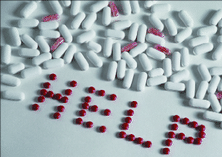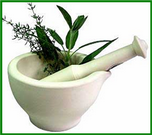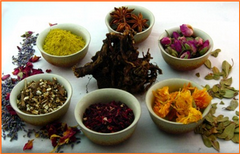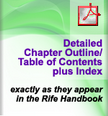Take Charge of Your Health
How to Take Charge of Your Health:
the Secrets of Fact Finding
© 2012 by Nenah Sylver, PhD
As a health educator, I am often asked questions by people who could get the answers themselves with a modicum of effort. I find this irritating, particularly because there is so much information in my books—and usually the answer can be found in The Rife Handbook, which is why I spent nearly 20 years writing it in all of its versions. Some of you might be surprised by how often people would rather simply ask me for a personalized, detailed, free consultation via email, rather than buy or borrow my book and look up the answers for themselves. (So before you write to me, please, pretty please, download the detailed Chapter Outline/Table of Contents and Index from The Rife Handbook for free, and see if your question is addressed.)
Not only is this presumption on my time irritating to me, but it ultimately doesn't serve the person who's asking the question. While it may seem more convenient to be given immediate answers by someone else who does your research for you, you may not always have this option. Most important, though, people who are simply given answers rather than do their own research are less likely to retain the information. They are also less likely to understand the principles behind the answers. Being fed information by someone else keeps you dependent on others for your healing. My goal is to help empower others. Here, then, are some tips on how to unearth the answers to the most commonly asked questions.

PART 1
"What’s Wrong With Me?"
or
"How Do You Treat _________?"
First, and this must be repeated, I am not a doctor and do not diagnose, treat or prescribe. Even if I were legally permitted to preform those functions, is it wise to ask for information of that sort from someone over the Internet?
That said...If you have a diagnosis of a specific disease, look it up in a library or on the Internet (see Part 2 for instructions on information gathering on the Internet). This can give you suggestions for diagnosis and/or treatment.
Even if you have a diagnosis, it may be inaccurate or misleading because the name of a disease doesn’t necessarily tell you the cause of the condition—and unless you know its cause, you may not know how to treat it. List all the symptoms you have and the year in which they started. Be as specific as possible with dates.
Write down everything you can think of that occurred the year in which the symptoms started, up to two years before the symptoms began. Sometimes it takes as little as 24 hours to perceive the cause and effect, with the cause-and-effect relationship very obvious. Sometimes it can take up to two years. But if you look hard enough, you can always find a relationship between difficult, stressful events and a negative result.
a. Emotional Triggers. Emotionally laden events such as trauma and shock (divorce, betrayal, death in the family, loss of job, abuse, etc.), and even positive stressors (such as a marriage, birth of a baby, or a desired move to a new location) can all precipitate illness. This category also includes spiritual and energetic causes.
b. Physical Triggers. These can include injury, vaccination, continued lack of quality sleep, change of life (puberty, menopause and other hormonal changes), or unexpected illness that appears different from the symptoms you’re initially investigating.
c. Chemical Triggers. These can include fake food and poor diet, polluted air or water, exposure to paints, solvents, pesticides, detergents, etc. Do your job, living or work situation consistently cause exposure to dangerous chemicals and other pollutants?
c. Energetic and Spiritual Triggers. These can range from exposure to harmful electromagnetic fields to a lack of anchoring and emotional support.
Once you have identified one or more possible causes, you can manage the symptoms more effectively. If you need more information concerning your symptoms, see Part 2.

PART 2
How to Find General Information
on the Internet
Using a Search Engine. Most people use Google. This media has become such a well-known search engine, that doing a search on the Internet is now synonomous with the verb "googling" (as in, "I'll Google that"). Unfortunately, Google has changed its algorithms and now, no matter how good a site might be, the sites that Google shows are all based on what mainstream culture and corporate America wants you to know. Hence, I recommend a non-biased search engine such as "DuckDuckGo" or "Dogpile."
Type in your Keyword or Keywords (these are words for what you are searching), and either hit "enter" on your keypad or click the "Search" button on the screen. This will bring up dozens, often hundreds and sometimes thousands of websites. For instance:
Example 1:
If you want to research Shitake mushrooms, type simply:
SHITAKE
Example 2:
If you want to research BOTH Shitake and Chaga, type:
SHITAKE CHAGA
Here, you have both words with quotation marks around them. Sometimes, if you string words together and put quotation marks around the words, Google will bring only those web pages that contain ALL the words.
Example 3:
If you want to know specific information about Shitake—say, its health benefits—type:
SHITAKE HEALTH BENEFITS
You can try it with or without quotation marks and see what you get.
Evaluating Information Obtained From a Search Engine. Obtaining information is the first step. Now see Part 3.

PART 3
How to Evaluate Information—
from a Person, Organization or Other Source
What credentials and values does this person / author / organization have? Keep in mind that credentials such as university degrees, trainings and certifications don’t always indicate quality—especially if the person has been trained by institutions devoted to maintaining the status quo. Also, being in the public eye doesn’t indicate quality. One’s experience, innate intelligence, skill, common sense, open-mindedness, and honesty are more important, and mean more, than approval from an educational institution, government agency, or "official" organization.
Is this person / organization / publication receiving financial support from a pharmaceutical company, agency or other source with vested interests? Consider the source of the person’s training and education. For example, many medical doctors have overt or covert ties to drug companies, and receive perks for promoting a particular therapy or drug. And many journals are funded by drug companies, or rely on advertising from drug companies.
Does this person / organization / publication appear to have your best interests at heart? If you’re evaluating a practitioner: Someone who is not acting in your best interests will try to encourage dependency (perhaps in the form of repeated visits or appointments), instead of teaching you how to become as self-sufficient as possible. On the other hand, someone who is sincerely on your side will provide tools allowing you to help yourself.
A compatible source of help includes values you resonate with. Are you treated with respect and courtesy? (This works both ways. Do you treat your practitioner with respect and courtesy? Do you act as though you value their time? Do you call whenever you have a question, or do you take the initiative to find out things for yourself before asking for help?)
If you’re evaluating an organization or publication: Does it appear to exist only to further its own existence? Or is it responsive to its members/readers, and does it provide a genuine service?
Is this person / organization / publication trying to sell you information? Selling per se is not a bad thing—everyone has to earn a living. Those who spend years researching, evaluating, testing, and compiling information can save you thousands of hours sorting through what is often apparently contradictory information. You have to decide if what they are offering you can help—and if not, simply say "No, thank you" and walk away.
Is this person / organization / publication trying to sell you a product or products? Again, if a product has value, there is nothing wrong with making money from it. However, is this person (or organization) giving you information solely because they want to sell you a product? Or is the information solid, based on sound science?
To evaluate the product, see Part 4. Only you can decide if the product’s value matches your wallet. If you are being asked to spend a little more now than you’d like, consider this: Will buying the product be worth it on a long-term basis if it benefits your overall health to such an extent that you’ll be healthier overall? (Being healthier overall will save you money long-term.)



PART 4
How to Evaluate a Product
List all the ingredients.
Write down what each ingredient is known for supporting.
Determine (if you can) the source of the individual ingredients. Are they organic, wildcrafted, synthetic? The source is important; you need to know how relatively clean these ingredients are.
Find out if the ingredients are assayed. "Assayed" means that the products contain the phytochemicals (plant compounds) or nutrients they are claimed to contain. This step relates to the previous step (#3), because if an ingredient is synthetic, chances are it won’t interact synergistically with the other ingredients.
Try to find out everything you can about the company, including its customer service. The best product in the world won’t help you if you can’t easily get someone from the company to answer the phone to talk to you in case you have questions. Also see if you can obtain reviews and testimonials. Sometimes these are "planted" by the company, but sometimes not. If you can feel the energy of who wrote the testimonials, you’ll be able to tell if they are sincere.
If specific claims are being made by the company, try to obtain the original research. Getting the names of the original process/product developers, and running those names through a search, is a good strategy. You will know that something is wrong if:
a. The company states that the information about the ingredients/products is proprietary and you have no way to confirm the truth of its claims;
b. The company has bought the patent(s) and is selectively providing information about its products without giving you all the data (such as "no effect" or "contraindications");
c. The company mentions researchers’ names that apparently do not exist;
d. You are able to locate the researchers/discoverers mentioned, but they have not written papers on the topic.
You (or your family member, friend or animal) have to like the product; it’s useless to you in the bottle or bag. (If you’re feeding an animal, see if you can successfully hide the ingredient in its food.) If the product is unpalatable (or even if you enjoy taking it), see if you can tune in to its energy. This is another piece of information that is useful to you.
To evaluate more than one product, see Part 5.



PART 5
How to Evaluate and Compare More Than One Product
List all the ingredients of both products in Column #1 and Column #2 (or Column #3, if there’s a third product).
Follow instructions from #2 in Part 4.
 SB stands for "Stress Buddy"
SB stands for "Stress Buddy"
PART 6
(Conclusion)
Knowing When You Need Help
Some of us don’t trust our experience or ability to act appropriately when we should—while others habitually rely on ourselves to the extreme, excluding others when we could really use some help. All of us need help at one time or another. The trick is to know when to rely on our own knowledge and skills, and when it’s time to call in the troops. Here are some circumstances when we need help.
Excess Stress. High stress levels, be they of physical or emotional origin, impair our judgment and prevent us from accurately assessing a situation. If you find the events of your life exceeding your ability to manage them with calmness and grace, get help!
Lack of Knowledge or Skill. It's impossible for one person to know everything! (Though it's a noble pursuit to try.) The world has become much too complex and too specialized for one person to adequately manage every possible situation. Don’t beat yourself up for not knowing; find someone who can assume some of the burden. What’s your burden will be someone else’s skill, experience and even joy.
Illness and Insufficient Energy. Sometimes we are too tired or ill to manage our affairs. Let someone qualified take up the slack and help.
Maintaining our autonomy while healthily relying on others is a dance of give and take. People aren’t static and neither is life. There will be lessons no matter what choices you make. Choose your compatriots wisely, people who allow you to make mistakes. Forgive them when they make mistakes—and forgive yourself when you do.

